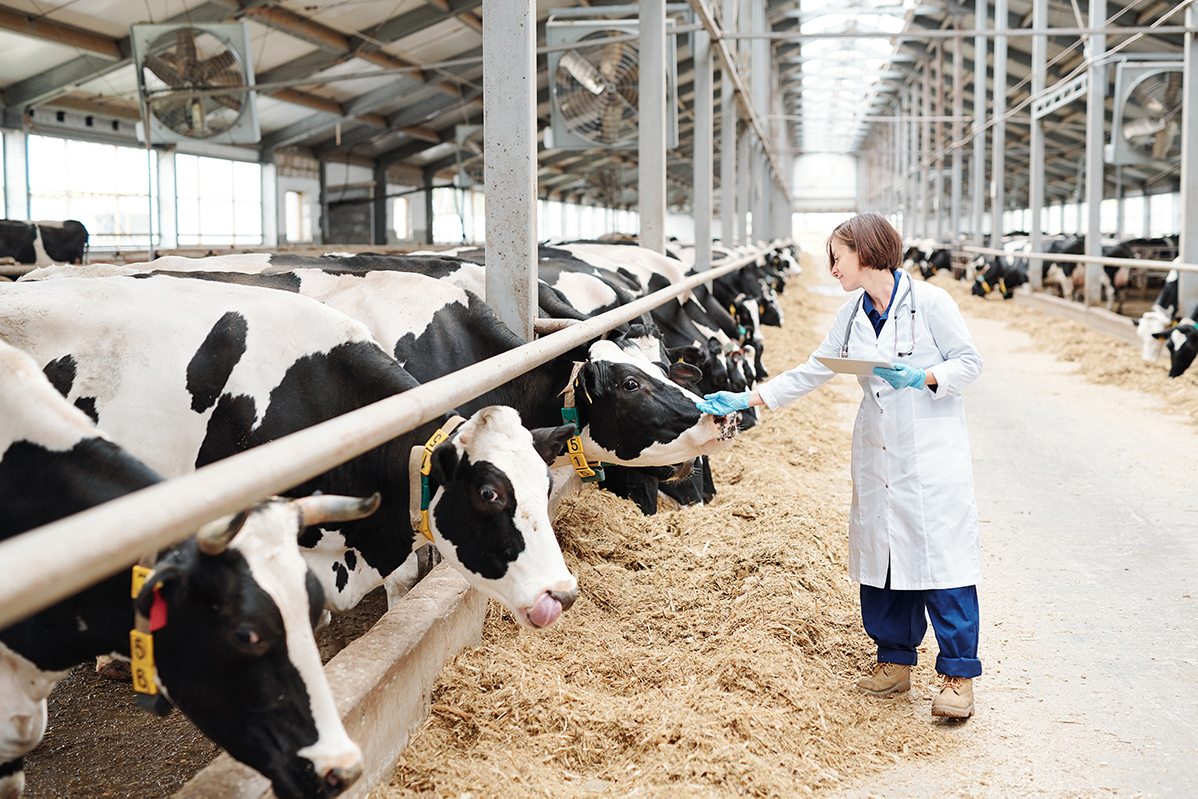Credit Courses
The 30 credit curriculum for the Online Master of Science in Food Safety program is broken into three parts.
1. Core requirements (15 credits). These include science courses covering food microbiology, toxicology, and epidemiology. Additional core requirements include either U.S. or international food laws and regulations and an introductory course.
2. The Plan B Applied Research Project (6 credits). This portion of the degree includes a preliminary research methods course (VM 830 Food Safety Research Methods) and completion the final project (VM 815 Applied Food Safety).
3. Electives (9 credits). Students are able to choose courses specific to their individual interests and will find that the program offers a large selection of relevant and current topics.
| Course Code | Course Name | Credits | Semester |
|---|---|---|---|
| FSC 810* | International Food Laws & Regulations | 3 | Fall, Spring |
| FSC 811* | U.S. Food Laws & Regulations | 3 | Fall, Spring |
| VM 810 | Intro to Food Safety & Professional Development | 3 | Fall, Spring |
| VM 811 | Evolution and Ecology of Foodborne Pathogens | 3 | Spring, Summer |
| VM 812 | Food Safety Toxicology | 3 | Fall, Spring |
| VM 815 | Applied Project in Food Safety | 3 | Fall, Spring |
| VM 830 | Food Safety Research Methods | 3 | Fall, Summer |
| VM 831 | Foodborne Disease Epidemiology | 3 | Fall, Summer |
| Course Code | Course Name | Credits | Semester |
|---|---|---|---|
| VM 814 | Packaging for Food Safety | 3 | Summer |
| VM 821 | Food Protection & Defense | 3 | Fall (odd) |
| VM 825 | Quantifying Food Risk | 3 | Spring (odd) |
| VM 826 | Creating a Food Safety Culture | 3 | Summer |
| VM 827 | FSMA/HACCP | 3 | Spring (even) |
| VM 834 | Current Issues in Food Safety | 1-9 | Fall, Spring, Summer |
| VM 840 | Anti-Counterfeit Strategy & Product Protection | 3 | Summer (odd) |
*One of either FSC 810 or FSC 811 is required, not both. You may choose one as a core class and choose the other as an elective if desired.
Credit Summary: 21 core credits + 9 elective credits = 30 credits
